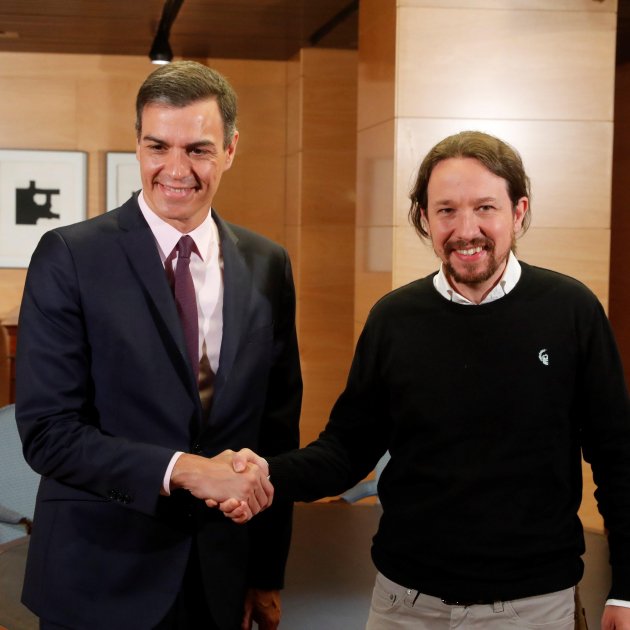Its general election was on 28th April this year, but Spain is still under an acting government. Negotiations for an investiture have been slow and mostly unfruitful. The debate and vote on Pedro Sánchez remaining prime minister is scheduled for next Monday and Thursday in the Congress in Madrid; if he doesn't get the votes, Spain will go to another election in November.
The main sticking point had been between the centre-left party of acting PM Pedro Sánchez, PSOE, which got the most seats in the election, and fourth-placed left-wing Podemos, led by Pablo Iglesias. Sánchez wanted confidence and supply for a PSOE government, Podemos wanted a coalition, or at least a ministry or two in return for their votes in the investiture. Sánchez had softened his position in recent days, opening himself to bringing in certain Podemos leaders to his cabinet, but made Iglesias his red line: Podemos's president would not be his deputy. Irene Montero, Iglesias's wife, however, and Pablo Echenique are among the Podemos figures seen as likely candidates to join the new government.
This afternoon, Iglesias has published a video to Twitter in which he says that he "cannot be PSOE's excuse why there isn't a left-wing coalition government". He said that whether he is present or not in the cabinet "will not be a problem, as long as there are no more vetoes [from Sánchez towards Podemos leaders] and Unidas Podemos's presence in the government is proportional to its vote". He apparently phoned Sánchez earlier this afternoon to inform him of his decision directly.
Even if he might now have Podemos's votes, Sánchez might still not get an absolute majority in the first round of voting on Tuesday. At that point, Congress would vote again on Thursday, when he would only need a simple majority to return as prime minister.
